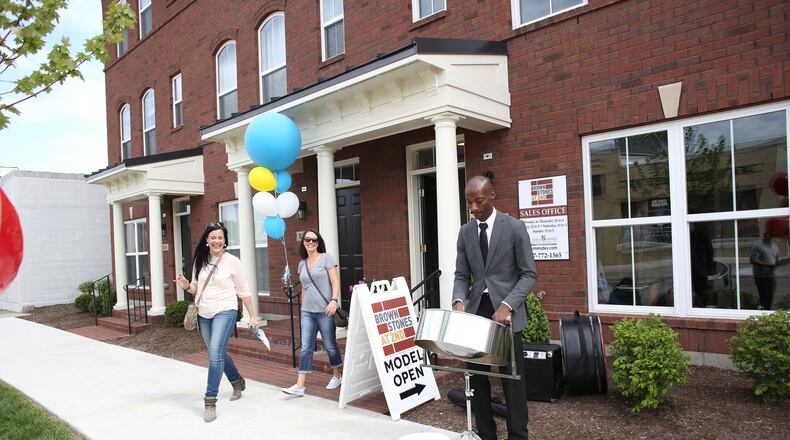About 42 percent of mortgages in the Dayton region last year were taken out by people under the age of 35, according to Realtor.com data.
RELATED: Dayton named on ‘America’s best towns ever’ list
The Dayton region ranks 38 out of the top 100 metro areas for its share of younger home buyers, besting Austin, Denver and other millennial meccas.
Dayton mixes big-city amenities with small-town affordability and approachability, and millennials can put together a very good lifestyle in this area without breaking the bank, said AJ Ferguson, director of UpDayton, a nonprofit leadership development and talent attraction initiative.
“The same professional renting a tiny studio apartment in New York or the Bay Area could likely own a multi-bedroom home or condo in our region,” he said.
The Dayton area may not be on the radar of most U.S. millennials, the oldest of whom were born in the early 1980s.
Dayton is small in comparison to places like Seattle, Miami, Fla., San Jose, Calif., San Francisco, and Los Angeles. These are large markets with strong economies and job growth, and they have many amenities and attractions that are scarce in smaller Rust Belt cities.
RELATED: Millions of 1st-time home buyers kept out of the market
But the Dayton region is hard to beat for home affordability, and it’s also been recognized as having a good quality of life by Outside Magazine and other respected publications.
Millennials are fairly well represented in Dayton’s housing market, the Realtor.com data show, which is encouraging since they an increasingly large and important part of the housing market.
Nationally, they account for the largest share of home buyers (34 percent), two-thirds of whom were purchasing their first home, according to the National Association of Realtors. Millennials are now more numerous than baby boomers.
For buyers under the age of 35, Dayton’s median home purchase price is $130,000, which is $88,000 less than young buyers pay nationally, Realtor.com data show.
Of the top 100 major metro areas in the nation, just three have lower median home purchase prices than Dayton for people under the age of 35, according to the data. The data reflects people with mortgages, and nearly all home buyers under the age of 36 finance their home purchases, experts say.
For people with mortgages of all ages, the median home purchase price in the Dayton region is $139,949, the data show.
The region’s affordability has always been an attraction to younger buyers, said Bob Morrison, Dayton Area Board of Realtors president.
RELATED: 1st-time home buyers drop to 36-year low
Many are first-time homebuyers or are just starting a family, and home prices in Dayton allow them to obtain home ownership while still managing student loans or other debt, he said.
“The biggest challenge millennials – and all consumers – are facing at the moment is the lack of inventory in the market,” he said.
Smaller cities and the Midwest should win back a good share of millennials from New York, San Francisco and the coasts as they decide to raise a family or return to take care of their parents, Ferguson said.
Millennials will want a taste of the urban density and amenities they enjoyed in larger markets, but they will not want to take enormous pay cuts or scale back their ambitions and the area needs to provide good economic and lifestyle opportunities, he said.
The Dayton region is affordable, but it needs to find ways to stand out from other Midwestern cities that has similar levels of affordability, he said.
Millennials are significantly less likely to own their homes than earlier generations, and many still live under their parents’ roof, according to the Pew Research Center.
But eight in 10 millennials who are renting want to buy their own house or condo at some point, according to a survey of 24,000 renters by Apartment List. Affordability remains the major obstacle they face.
Many millennials have student debt. Others do not have enough savings for a down payment. Still others need full-time and good-paying work.
About the Author

